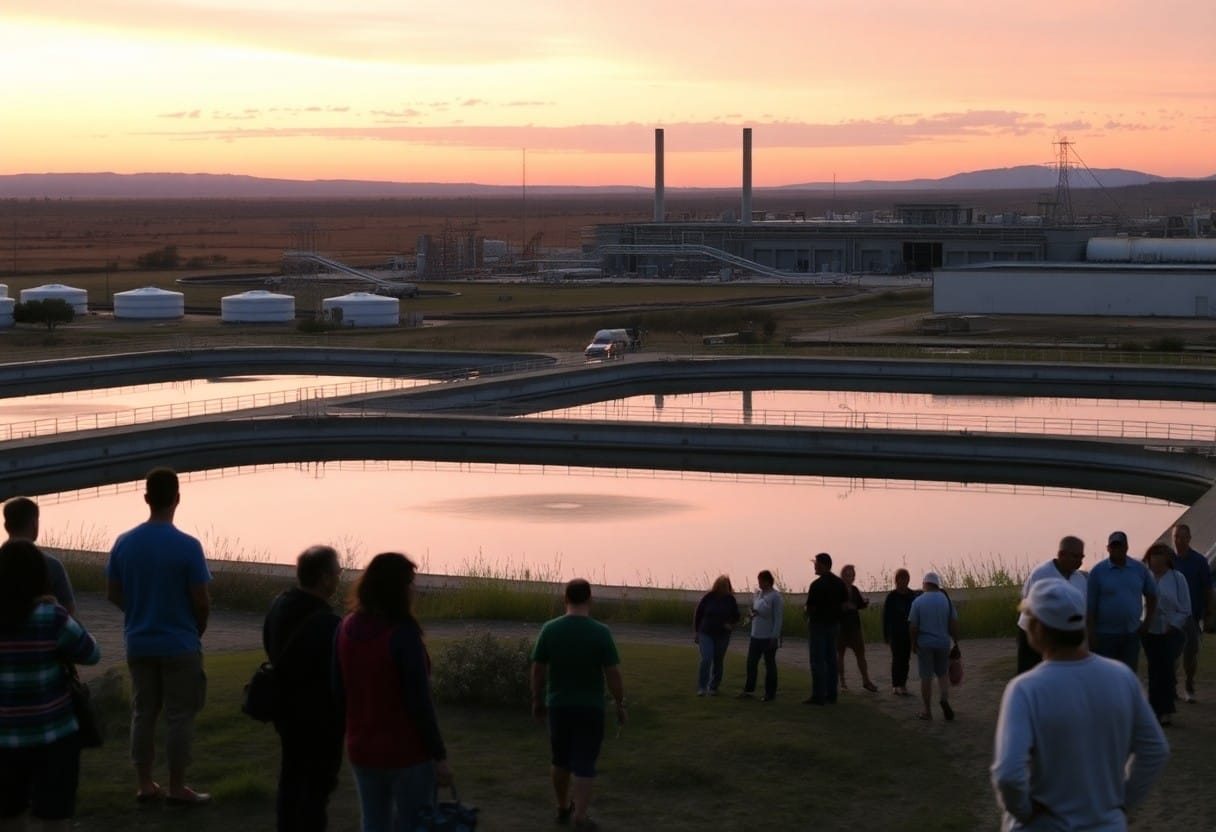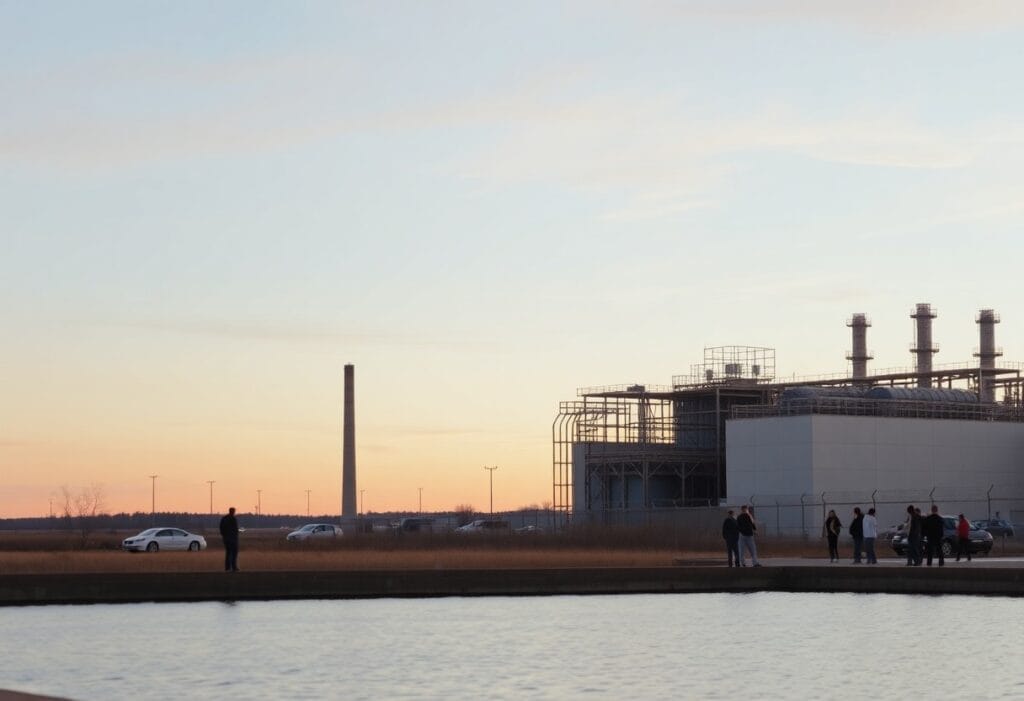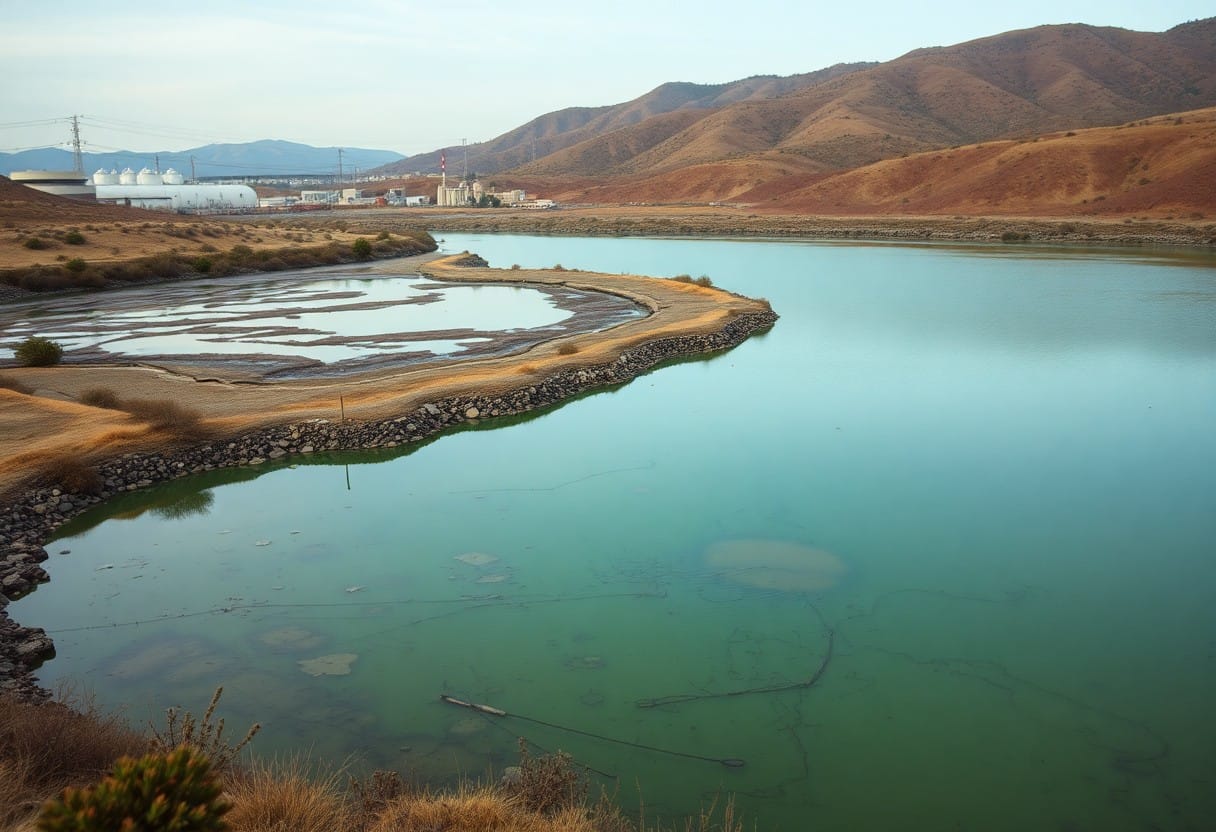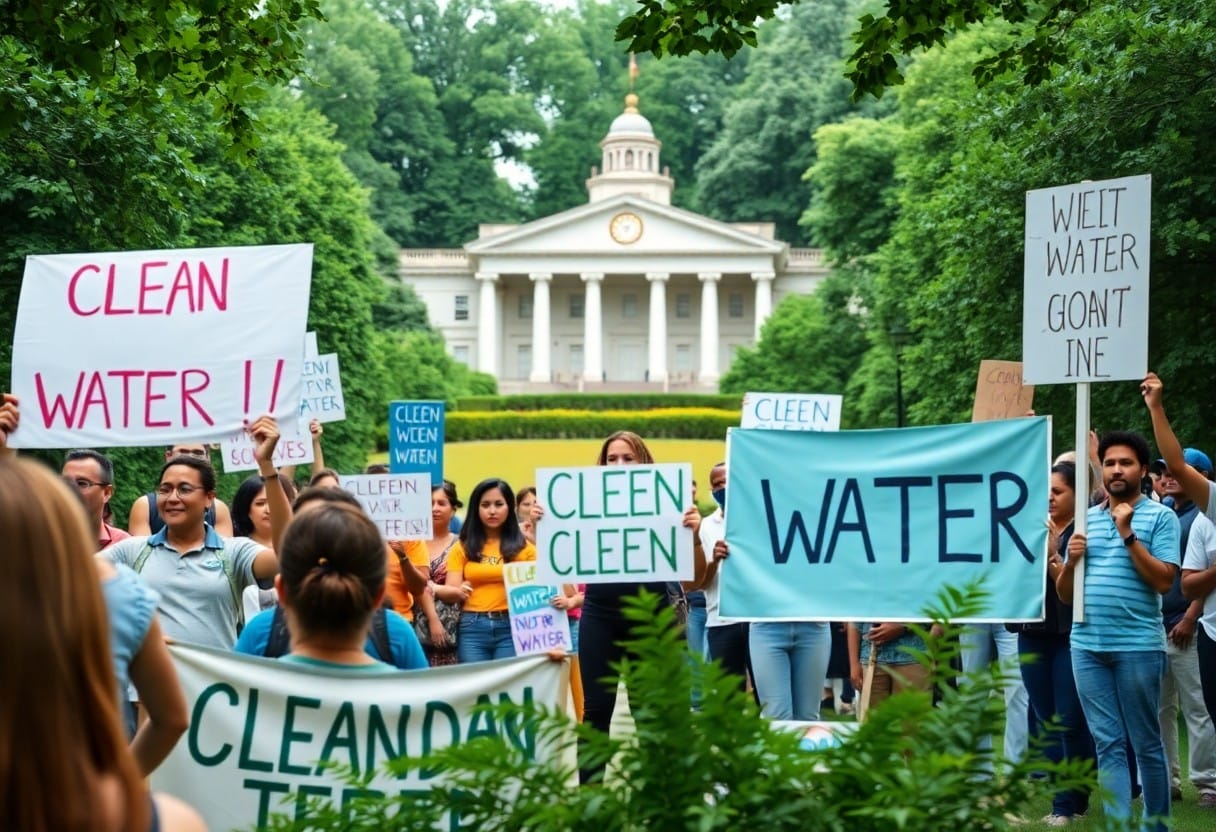Many residents of Fayetteville are grappling with the aftermath of the water crisis, raising concerns about their safety and trust in local corporations. The controversy surrounding Chemours, linked to toxic chemical contamination affecting your water supply, has left you questioning the company’s accountability and commitment to your community. As Chemours steps forward to address these issues, you may wonder whether their efforts can truly restore your confidence and ensure a healthy, safe environment for you and your family. This post explores the challenges ahead for Chemours and the potential paths toward rebuilding trust.
Background of the Fayetteville Water Crisis
Before the Fayetteville water crisis emerged, residents relied on the local drinking water supply without hesitation. However, the situation changed dramatically when alarming levels of contaminants, primarily per- and polyfluoroalkyl substances (PFAS), were detected in the water sourced from the Cape Fear River. This discovery raised serious concerns about the long-term health risks associated with these chemicals, which have been linked to various health problems, including cancer and developmental issues. You may have experienced growing anxiety as news of the contamination spread, prompting many to seek alternative water sources. The community was left to grapple with the reality that their trusted water supply was tainted, leading to widespread distrust in local authorities and the companies responsible for water safety.
Overview of the Water Contamination Issue
Between the years 2017 and 2019, the situation became more dire as comprehensive studies revealed that levels of PFAS in the drinking water far exceeded EPA safety advisories. You might find it unsettling to learn that these substances can persist in the environment for decades, making the cleanup process particularly challenging. As the implications of these findings settled in, many residents began to question the integrity of the monitoring and management practices that had previously ensured their water supply was safe. Consequently, the crisis led to fierce debates over regulatory measures and accountability, compelling both local officials and Chemours to face intense scrutiny from the public.
Impact on the Local Community
Local residents faced numerous challenges as the Fayetteville water crisis unfolded. Uncertain of whether their tap water was safe to drink, many began to resort to purchasing bottled water or investing in filtration systems, leading to increased financial burdens. The overwhelming sense of betrayal by Chemours and local authorities likely affected your daily routines and overall quality of life. Moreover, the crisis has sparked anxiety not just about the immediate health risks, but also about the potential long-term effects on property values and the community’s economic stability.
Crisis management efforts were complicated as conflicting reports and a lack of transparent communication left many residents feeling vulnerable and uninformed. Local community organizations sprang into action to provide support and advocate for safer water solutions, helping to mobilize residents to demand justice and accountability. As you navigate this tumultuous landscape, you might feel a simmering anger about the perceived negligence that jeopardized your family’s health and well-being. This situation has undeniably catalyzed a deeper dialogue about environmental justice and corporate responsibility, posing significant questions about how trust can be rebuilt in the aftermath of such a profound public health crisis.
Chemours Company Profile
While Chemours is a global chemical company that has carved out a significant role in the manufacturing of titanium dioxide and other chemical products, its presence in Fayetteville has been marred by controversy. Established as a spin-off from DuPont in 2015, Chemours has aimed to balance its economic contributions with community responsibilities. You can explore how Chemours is striving to improve its image and rebuild community relationships by visiting Chemours Ends Its Silence, Seeks To Rebuild Trust.
History and Operations in Fayetteville
Before Chemours began operations in Fayetteville, the site was already a focal point for chemical production, inherited from its predecessor, DuPont. The Fayetteville facility is primarily involved in the production of titanium dioxide, a pigment widely used in coatings, plastics, and other applications. This facility has played a pivotal role in the local economy, providing jobs and stimulating growth. However, it has also faced significant scrutiny following reports of environmental contamination.
Previous Environmental Concerns
Across the years, Chemours has been under the spotlight due to allegations of releasing hazardous materials that have adversely impacted local water supplies. The contamination of drinking water with per- and polyfluoroalkyl substances (PFAS) raised alarm among residents and regulatory agencies alike. You must be aware of how these substances can persist in the environment and accumulate in human bodies, leading to various health concerns.
Concerns about Chemours’s environmental practices have highlighted not just potential health risks associated with PFAS, but also the need for transparency and accountability. The community has expressed its unease regarding the implications of chemical discharges, leading to increased public scrutiny and demands for remediation efforts. In a proactive step, Chemours has initiated dialogues to address these fears, emphasizing its commitment to restoring the integrity of local water sources and ensuring a safer environment for Fayetteville’s residents.

Government and Regulatory Response
Clearly, the water crisis in Fayetteville prompted both local and federal governments to take immediate and significant actions. The Environmental Protection Agency (EPA) stepped in to assess the extent of contamination and hold Chemours accountable. These efforts were necessary in developing new regulations for water quality standards, particularly concerning per- and polyfluoroalkyl substances (PFAS). The establishment of stricter regulations aimed to ensure the safety and reliability of your drinking water, while simultaneously pushing Chemours to adopt better waste management practices that would prevent such a crisis from arising in the future.
Regulatory Actions Taken
With federal agencies and state authorities mobilizing swiftly, multiple regulatory actions were initiated to tackle the fallout from the water contamination. The North Carolina Department of Environmental Quality (NCDEQ) implemented measures to monitor and regulate the level of PFAS in water sources. They also mandated that Chemours provide updates on their cleanup efforts and established deadlines for remediation. These regulations have been crucial in restoring public confidence in the safety of your drinking water, necessitating transparency and accountability from the corporation.
Community Involvement and Activism
Below, community involvement and activism emerged as a powerful response to the water crisis, demonstrating the public’s demand for accountability from Chemours. Local residents mobilized grassroots campaigns, organized meetings, and called for increased transparency from both the government and the company. These efforts were pivotal in bringing attention to the issue and ensuring that it remained a priority on the local agenda. Your voice, alongside others in the community, contributed to an atmosphere where demands for change could no longer be ignored.
Consequently, the activation of local residents and advocacy groups has placed additional pressure on Chemours to ensure that they not only rectify their mistakes but also build a sustainable relationship with the Fayetteville community. Public demonstrations and petitions have strengthened the local sentiment that corporate responsibility and consumer safety should not be optional, but rather fundamental tenets of business operations. As you engage in these movements, it’s critical that you remain informed and active in holding both the company and regulatory bodies accountable for the incident, ensuring that the tragedy of the past leads to a more transparent and safer future for everyone in Fayetteville.
Efforts Toward Remediation
After the water crisis that deeply affected Fayetteville and its residents, Chemours recognized the urgency of regaining the community’s trust. To demonstrate commitment, the company has put forth various initiatives aimed at addressing the environmental concerns surrounding PFAS contamination. In a recent statement, Chemours vows to be the ‘best’ at controlling PFAS, positioning itself as a proactive entity in environmental remediation. This pledge speaks to a broader strategy to mitigate the impact of historical contamination and implement advanced technologies to ensure ongoing compliance with health and safety standards.
Steps Taken by Chemours
Steps taken by Chemours include the installation of advanced filtration systems designed to effectively remove PFAS chemicals from water sources. You will find that ongoing monitoring and transparency are central to these efforts, as the company has committed to regular reporting on water quality results. Additionally, Chemours has allocated substantial financial resources towards remediation projects and community initiatives, which are intended to provide residents with safer water while fostering a new relationship based on accountability.
Assessment of Water Quality Improvements
By implementing these measures, you can see that there are positive trends emerging in water quality assessments. Independent testing has shown a reduction in PFAS concentrations in water sources surrounding Chemours facilities. This data indicates that the steps taken are beginning to yield results; however, continued scrutiny and public involvement remain vital for sustaining this momentum.
Understanding the assessment of water quality improvements is paramount for residents who have been affected by the crisis. The efforts to monitor and eliminate PFAS from drinking water are evident, with significant decreases in pollutant levels reported over time. However, the path to full recovery and trust demands ongoing transparency and engagement from Chemours. To foster a lasting partnership with the community, it’s vital that the company not only maintains but also builds upon these improvements to ensure that your health and well-being are prioritized moving forward.
Strategies for Regaining Community Trust
Despite the challenges presented by the water crisis in Fayetteville, Chemours has a path forward that necessitates proactive and strategic measures. Regaining community trust will require understanding the concerns of residents and fostering a deep sense of accountability. By implementing systematic approaches focused on transparency and collaboration, you can pave the way for a more positive relationship with the community that has been impacted by past actions.
Transparency and Communication
Across various sectors, transparency has become a cornerstone of rebuilding trust. Chemours can adopt a model where open lines of communication are prioritized, ensuring that you, as the community, receive timely information regarding public health, safety measures, and environmental impacts. Regular updates through community meetings, newsletters, and social media platforms can keep you informed and engaged. This platforms can also serve as a space for your questions and concerns to be addressed directly, reinforcing the notion that your voice matters in shaping decisions that affect your water supply and overall well-being.
Building Partnerships with Local Stakeholders
Along with transparent communication, forming genuine partnerships with local stakeholders is necessary in regaining trust. By collaborating with community leaders, environmental organizations, and health officials, Chemours demonstrates a commitment to shared goals that prioritize safety and sustainability. This partnership not only enhances community involvement in decision-making processes but also facilitates collaborative efforts that resonate with your specific needs and preferences.
Due to the complex nature of environmental issues, establishing trust through partnership involves more than just dialogue. It requires a tangible commitment to positive actions and investments in local well-being. The incorporation of your local stakeholders in meaningful initiatives, such as educational programs and research collaborations, can promote a sense of shared responsibility. Furthermore, demonstrating a willingness to address past mistakes by providing resources for remediation and ongoing support can significantly shift the community’s perception towards a more favorable outlook on Chemours’ commitment to both you and the environment.
Long-term Implications for Chemours and Fayetteville
Economic and Environmental Considerations
For Chemours, the fallout from the water crisis represents not only an environmental wake-up call but also a substantial economic reckoning. The negative impact on community trust could lead to long-term financial consequences, potentially affecting the company’s market value and operational costs. As you consider the implications, the ongoing need for monitoring and environmental remediation will involve hefty investments, both in terms of compliance and public relations. It is imperative that you understand the necessity for Chemours to engage in transparent reporting and establish a genuine relationship with the local community to rebuild trust while safeguarding the environment.
Possible Future Challenges
Fayetteville may face significant hurdles as it navigates the aftermath of the crisis. The local government and residents may find themselves confronting public health concerns related to contamination, while also managing the anxiety surrounding water quality and safety. As a resident, you may feel the effects of this crisis resonate through various aspects of your life, from property values to community sentiments. The confrontation with Chemours will require careful balancing of regulatory oversight and corporate responsibility, as both parties work toward a sustainable resolution.
Challenges are likely to manifest in various forms as you look towards the future. The community will have to stay vigilant regarding ongoing regulatory pressures on Chemours to ensure compliance with environmental standards. Additionally, as potential litigation unfolds, you may have to navigate the psychological ramifications of distrust in corporate assurances and whether they can fulfill their commitments effectively. You should be aware that the relationship between Chemours and the Fayetteville community hinges on their ability to address these issues openly and adequately, fostering a collaborative approach toward environmental safety and economic viability.
Summing up
Now, you may find yourself contemplating whether Chemours can indeed regain the trust of Fayetteville’s residents after the water crisis. The company’s willingness to increase transparency and actively engage with the community will be key factors in this recovery process. By implementing measures to ensure the safety and quality of water, Chemours has the opportunity to demonstrate its commitment to rectifying past mistakes and prioritizing public health. However, it ultimately depends on how well you perceive these efforts and whether they resonate with the concerns and priorities of your community.
Moreover, it is necessary for Chemours to establish ongoing dialogue with residents and address any lingering skepticism you may have. By fostering relationships built on accountability and integrity, the company can pave its way toward restoring trust. You may feel that the path forward involves not only addressing environmental impacts but also committing to long-term solutions that alleviate the concerns of Fayetteville’s residents. Only time will tell if these strategies will be enough to mend the fractured trust and rebuild a safe, sustainable community.


















